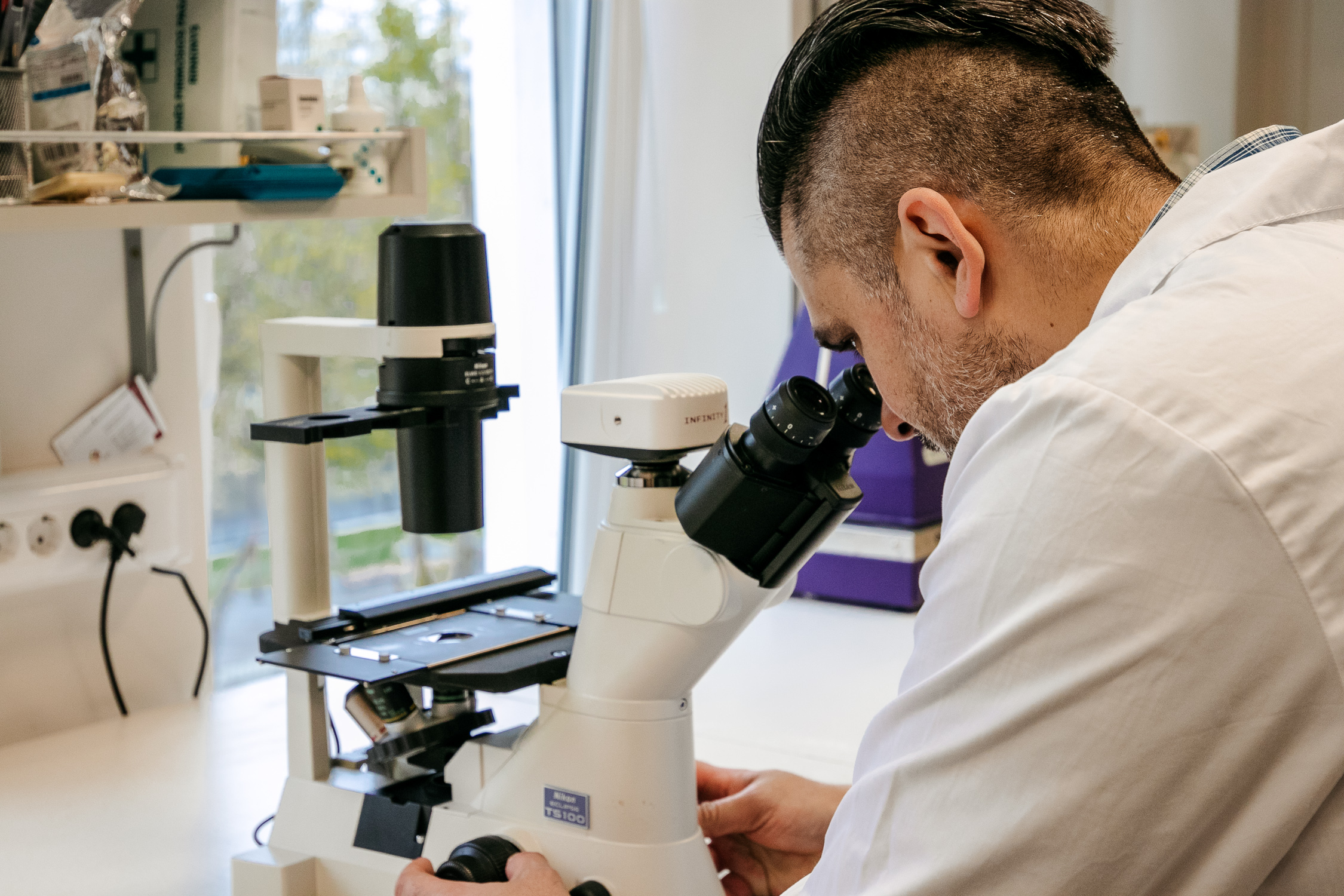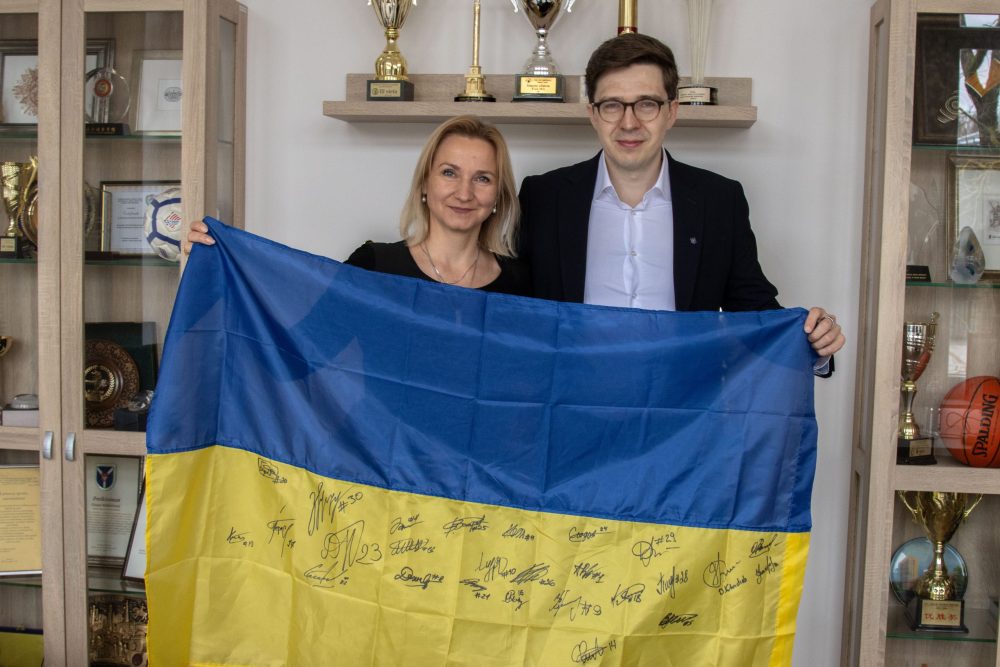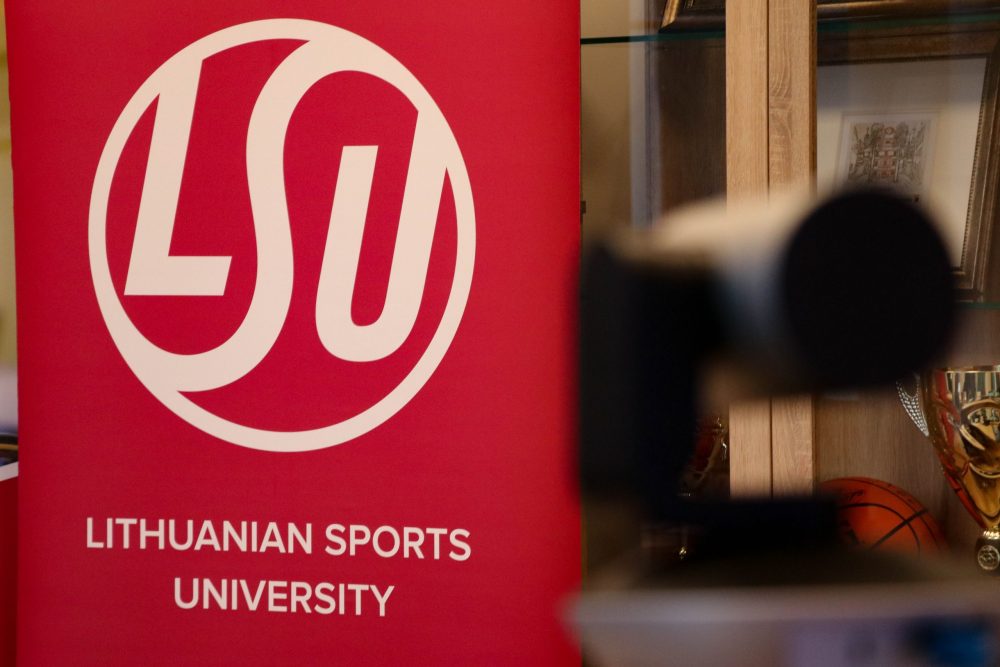LSU participates in an international project “How to lead a club to a successful future”
 Assoc. Prof. Dr. Irena Valantinė and Dr. Inga Staškevičiūtė-Butienė, teachers at the Department of Sport Management, Economics and Sociology, LSU, are commencing their activities of Erasmus+ sports programme (Collaborative Partnerships and Not-for-profit European Sport events) project “How to lead a club to a successful future / sportGO” (557990-EPP-1-2014-1-AT-SPO-SCP). The project will last for 28 months.
Assoc. Prof. Dr. Irena Valantinė and Dr. Inga Staškevičiūtė-Butienė, teachers at the Department of Sport Management, Economics and Sociology, LSU, are commencing their activities of Erasmus+ sports programme (Collaborative Partnerships and Not-for-profit European Sport events) project “How to lead a club to a successful future / sportGO” (557990-EPP-1-2014-1-AT-SPO-SCP). The project will last for 28 months.
The project is partially (80 %) financed by the European Union funds. The total project budget amounts to 473,022.04 EUR, 29,336 EUR constituting as the share of LSU.
The coordinator of the Project is University of Applied Sciences, Austria. Project Partners: University of Ljubljana (UNIVERZA V LJUBLJANI), Slovenia; Lithuanian Sports University, Lithuania; University of West Hungary, Hungary; World University Service (WUS), Austria; Lithuanian Union of Sports Federations (Lietuvos sporto federaciju sajunga), Lithuania; Styrian Volleyball Association, Austria; Olympic Committee of Slovenia (Olimpijski komite Slovenije), Slovenia; Universidad de Alicante, Spain University of Sarajevo (Univerzitet u Sarajevu, Fakultet sporta i tjelesnog odgoja), Bosnia and Herzegovina; Olympic Committee of Sarajevo (Udruzenje gradjana "Olimpijski komitet Bosne i Hercegovine", Sarajevo), Bosnia and Herzegovina; Real Federacion Española de Hockey, Spain; Orienteering Federation of County Vas, West Hungary.
SportGO aims to support sports clubs by developing a practical training programme to enhance the governance skills of semi-professional and amateur sports club officials.
The project aims at:
· improving available structures and implementation of cost-efficient governance of semi-professional and amateur sports clubs;
· fostering grassroots sporting activities by supporting semi-professional and amateur sports clubs in governance and enabling good conditions for their active members;
· strengthening the national and regional sports governing bodies by increasing their training offers to their members and their capacity in training representatives of sports clubs;
· exchanging and transfer of knowledge and know-how related to governance and management of sports clubs from higher education institutions and training providers to sports clubs and vice versa and
· on a meta-level developing social capital of youth in “healthy” sports clubs engaged in youth training.
Specific objectives of the project are:
· to develop innovative training programmes that increase governing capacities of amateur and semi-professional sports clubs;
· to enable regional/ national team sports bodies to train their semi-professional and amateur members on management issues;
· to strengthen/ develop governing skills of officials of amateur and semi-professional sports clubs participating in the learning programme developed in the project;
· to improve the conditions of the active members of participating sports clubs in the pilot phase.
The innovative character of the sportGO project is expressed by:
· The project aims at integrating the latest trends in management with the current structures of European amateur and half-professional sports clubs. Such integration will enhance the learning process of the sports club managers.
· SportGO wants to create a new kind of a link between the theoretical and the practical aspects of the management of sports clubs that would provide volunteers with both hard skills such as management competences and soft skills such as leadership skills.
· The sportGO project is innovative in the sense that it offers courses for semi-professional and amateur sports clubs where mostly volunteers are engaged. Additionally, the circumstances for these clubs differ in many respects.
· It will develop an interdisciplinary approach integrating management and sport science faculties of universities as well as sport governing bodies to develop a holistic training approach that is not too academic on a practical level and is also adaptable to different knowledge levels of the trainees.
· Due to the composition of the sportGO, project consortium gives the project an innovative character, as it offers a broad range of applicability which has not existed yet.
· The international approach developed by partners from 5 countries will be innovative in terms of the collection of national good practices as well as learning experiences from sports club structures in different nations.
· The learning programme of sportGO will use skill cards to define competences needed and is therefore based on competence-based approach. Skill cards will be in line with the European Quality Framework and is therefore unique for the target group of volunteers in amateur and semi-professional sports clubs.














